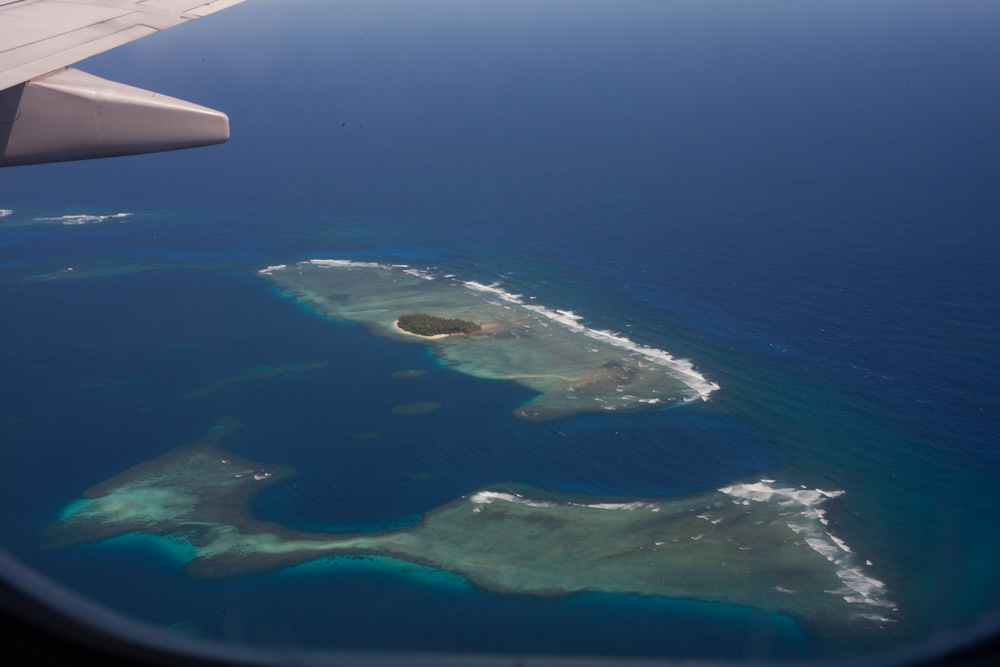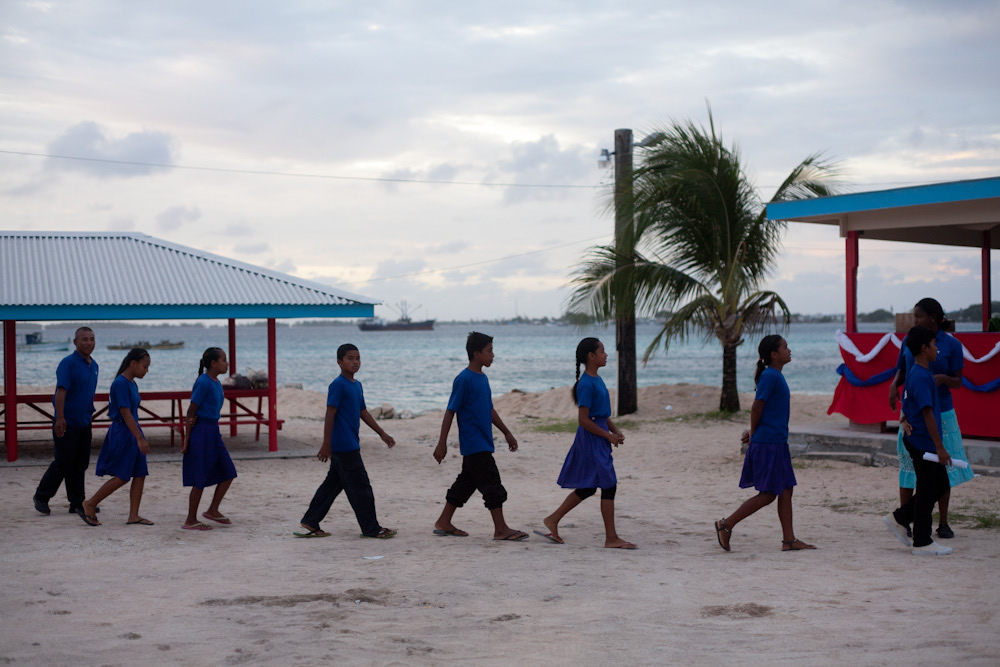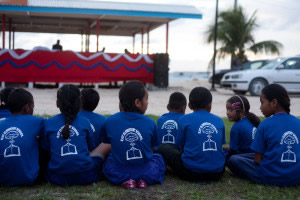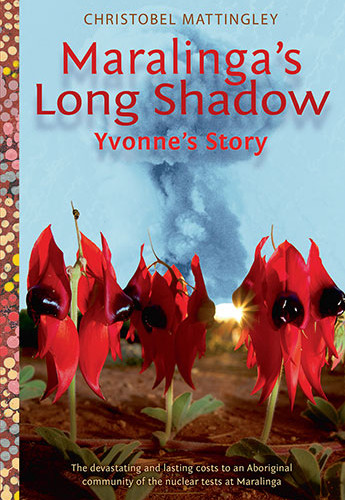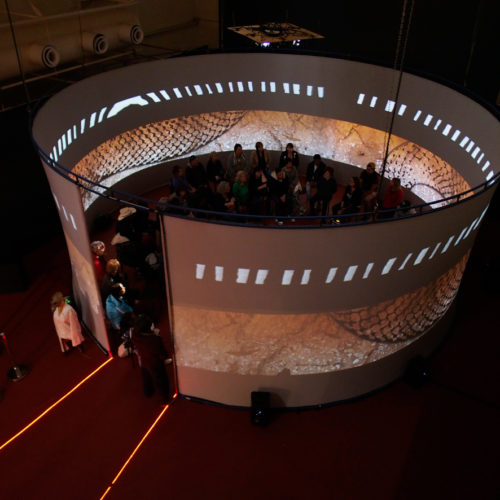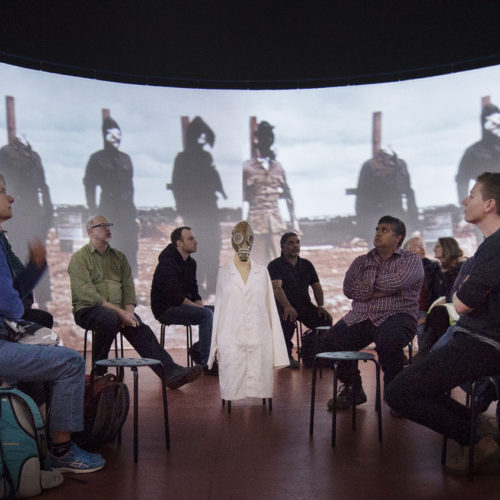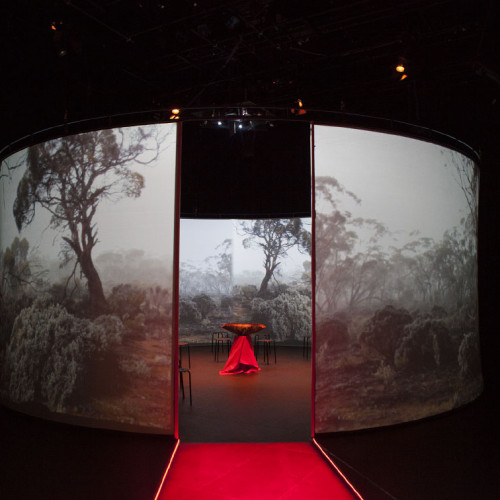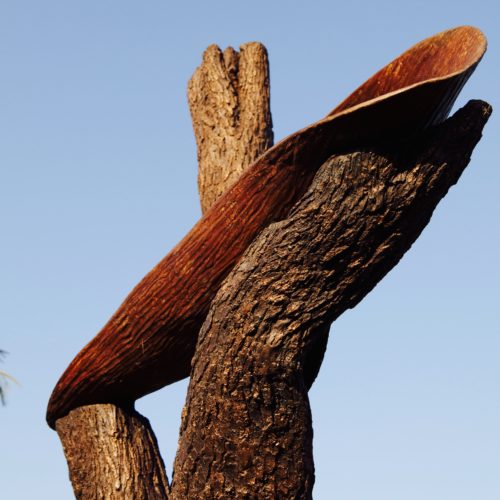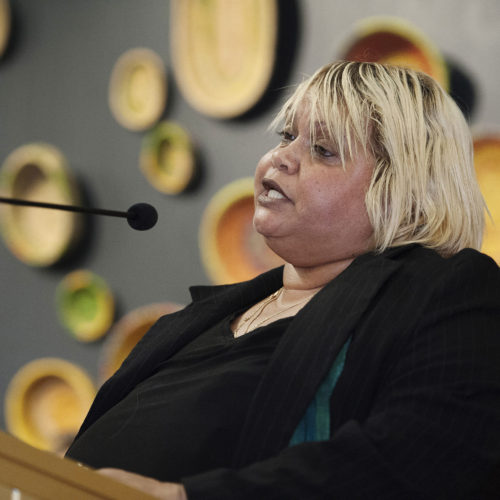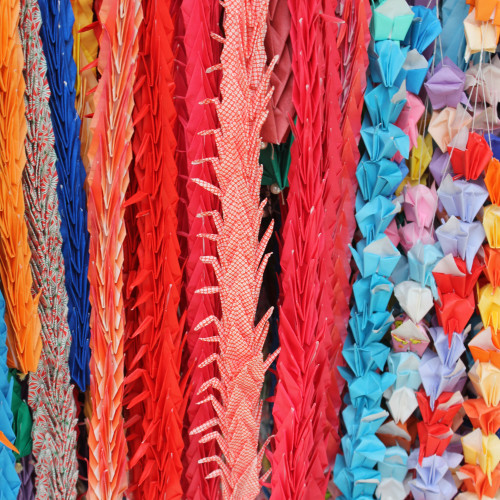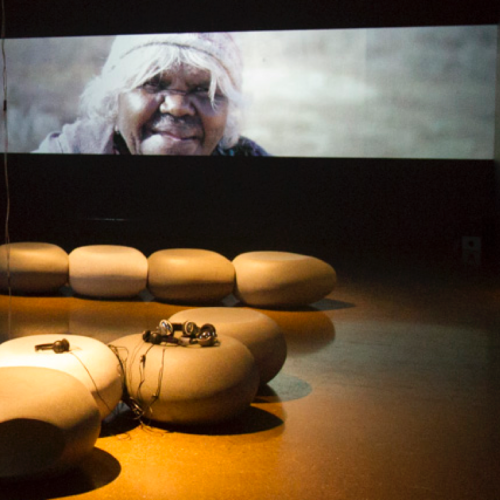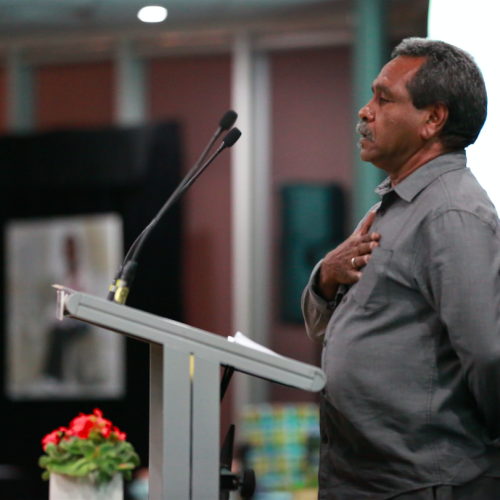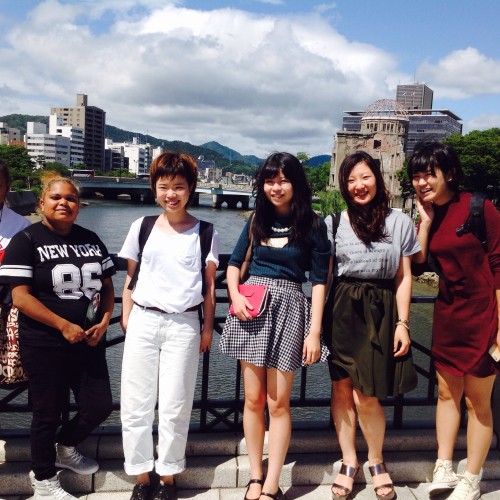-
Maralinga's Long Shadow: Yvonne's story wins NSW Premier's Award
- 7 years ago
- The annual NSW Premier's Awards for History, presented in Sydney on Friday 1 September 2017, saw one of our partnership projects honoured, when "Maralinga's Long Shadow: Yvonne's Story" took out the Young People's Hi[...]
Marshall Islands Day One
We arrived in Majuro on Tuesday morning after what felt like a very long time standing around in Honolulu airport waiting for the line to move and nearly missing the plane altogether. Once on the outer of the Marshall Islands we began to spot the islet’s, atolls and islands that popped up in the ocean like little blips of light blue water surrounding tiny bits of land. As we descended into Majuro it felt as if we were going to land in the ocean because the island is so skinny the water is on either side of the runway.
Mick met us at the airport and took us back to Reimers hotel, where it seems almost anyone passing in and out of the country comes to for meals and meetings at some point during their stay. Travelling to the hotel, well, travelling anywhere on Majuro is up and down the same road that stretches the 40km length of the island and taxis are 75c anywhere you go, which makes things easy.
We met up with Bo Jacobs and after getting settled in our rooms, began discussing the plan for the Global Hibakusha workshops; the Kazakh and Japanese participants are not arriving until the 27th, so we have a couple of days to get oriented and figure out the iPads and technicalities of what we will be teaching them.
Later in the evening we caught a taxi to the Delap park where day 2 of nuclear victims remembrance day was happening, this evening it was the Bikini Atoll community who being remembered. Elementary school kids from Ejit, a small island at one end of Majuro, were there to sing and read an essay about not being able to return home to Bikini. We were given the essay from the teacher so we can republish it here:
“Our Bikinian Generation”
About 68 years ago, the Bikinian people left Bikini and searched for another island because the U.S. military wanted to test bombs there. Bikinians were forced to leave. Many people thought that only one bomb was tested, but between 1946 and 1958, 23 nuclear bombs were tested there. The bomb that affected the most people was called Bravo. Bravo, the strongest and most powerful bomb detonated in Bikini, reached Rongelap, Rongerik, Utrik, and Ailinginae atolls. The ashes burned the skin of the people living on these atolls. The bombs destroyed our coral reef, animals, soil, and plants. It poisoned our island, our home.
Whenever we sit with our grandparents and they tell us stories about Bikini, we feel sad and embarrassed because we are not in the right place, and we are using somebody else’s island. We are using Ejit and Kili as our home, but they are not our real homes. We have never seen or known Bikini, we have only seen pictures and movies. Our mothers, fathers, grandmothers, and grandfathers miss Bikini, and we miss it with them. We are not the generation of those who were moved a long time ago, but it is our responsibility to go back home and keep our Bikinian culture.
Ejit Elementary school kids, with a picture of a bomb blasting out of a book as their logo / Photo: Jessie Boylan
We are happy and proud to be Bikinian because to be Bikinian means to stay alive. We are the generation who has to keep fighting for Bikinians. We cannot forget our people who have passed away. We will remember until we die. We will teach our children like our parents taught us. We have to remember so we can stand and fight for Bikinian people. When the Compact ends, we Bikinians will say to the American people that they cannot end the Compact for the people of Bikini as long as we are not on our own land. Not all Americans know what the U.S. did. They forget. They forget about the Bikinian people, but Bikinians were promised that they would return home. We cannot forget that the United States made a promise to us. We will be strong and fight until we go back home. Thank you.
Written by: Babyann Lewis, Erica Capelle, Stephen Joel, Anna Jokon, Jenetty Rujke, Bitianto Wottokna, Billma Melson, Salome Fakatou, and Judah Bejiko; the Ejit Elementary School 7th and 8th grade class.
Presented by Babyann Lewis, Billma Melson and Stephen Joel.
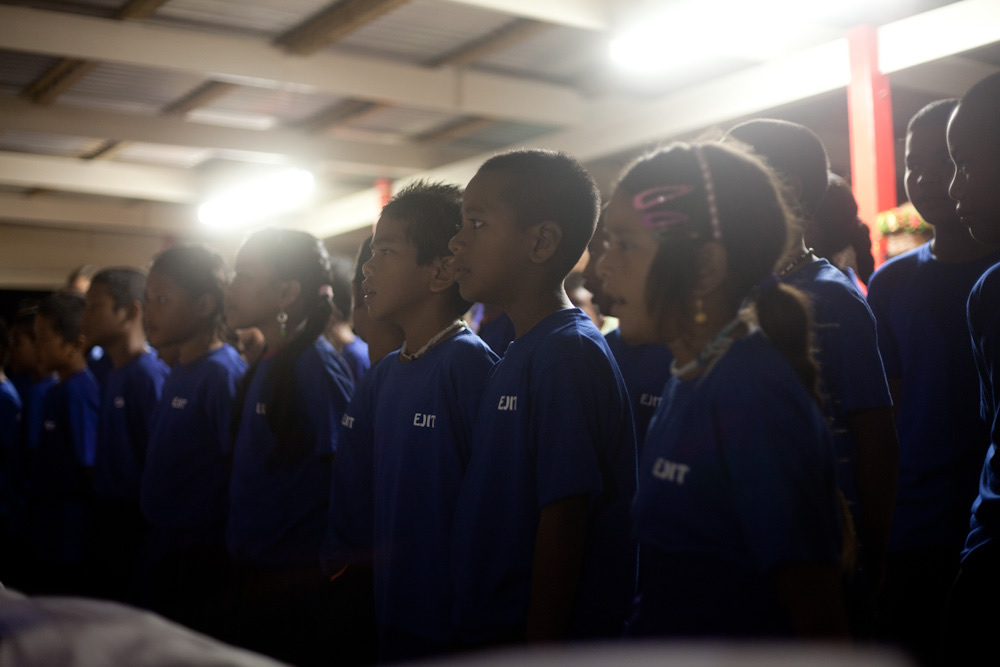
Ejit Elementary school kids who are originally from Biniki Atoll, singing at nuclear victims remembrance day on Majuro, Marshall Islands / Photo: Jessie Boylan
